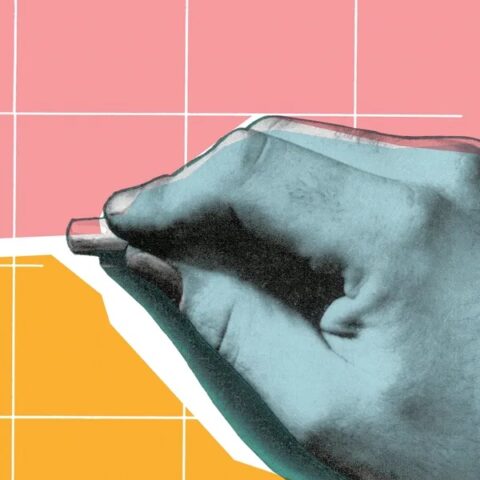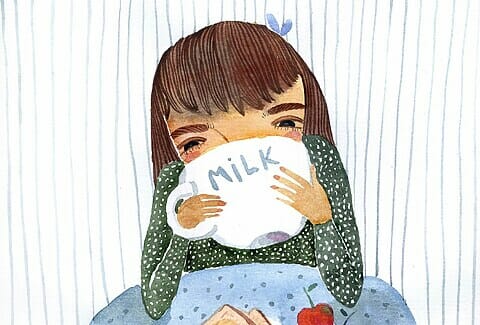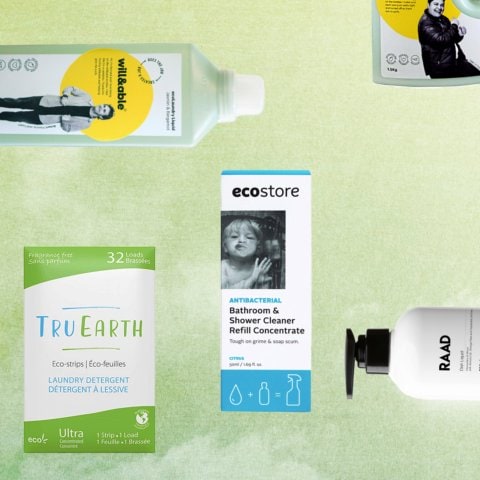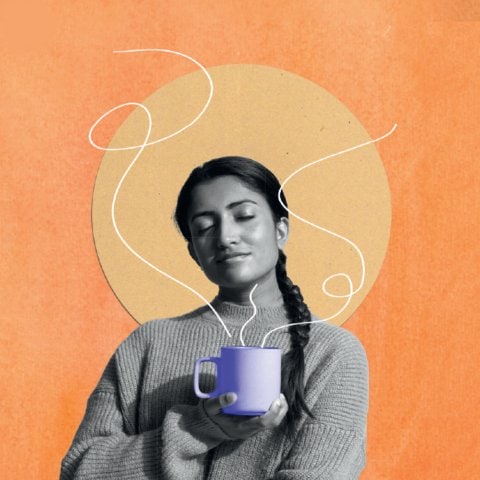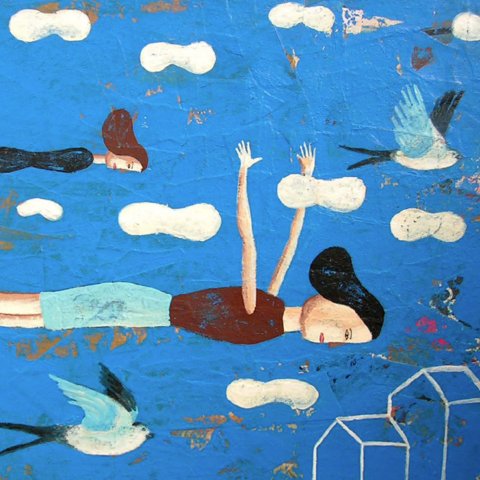There’s nothing shallow about enjoying the mood-boosting benefits of a swish of mascara, says Lucy Corry, who examines her complicated feelings about make-up.
For a lot of people, mindfulness practice is like flossing their teeth: they know it has a lot of benefits but it just seems too much work. I was one of them, until I developed a short, satisfying mindfulness routine that requires just me, a mirror and a motley collection of make-up.
Applying make-up, we are often told, is a frivolous, pointless activity; a ridiculous ritual that women are encouraged to sign up for in lieu of more important things. But I beg to differ. For me, make-up is like art therapy; albeit on a small, increasingly scrunched-up canvas.
Nothing is as calming and restoring to my mental health as 10 minutes in front of the mirror. I’d be lying if I said this wasn’t because I want to look better, but the deeper reason is because it makes me feel better. Even spending three minutes rubbing in a silky beige worm of BB cream, restoring my ’90s eyebrows with a wave of brow gel and boosting my lashes with a quick flick of mascara is enough to help me put a brighter face on the day ahead.
It turns out that science is on my side. Studies show that touching your skin, for example when applying make-up, is enough to release the love hormone oxytocin, which has an overwhelmingly positive impact on emotions. The creative process of choosing products and applying them is recognised as a soothing ritual; even if you feel like you don’t have control over many things in your life, you can at least control what you put on your face. Whether you’re going for a quick swipe of lippy or a full face production, seeing the finished handiwork is enough to induce a mood-boosting hit of dopamine. There are other benefits, too. In 2018, researchers in Japan found that seeing or touching favourite cosmetics evoked similar brain activity to seeing a much-loved family member or partner.
Make-up memories
That makes total sense to me. When I was a little girl I loved watching my mother “put her face on”. Her collection was modest; a trio of avocado shades in a cracked case with “Harriet Hubbard Ayer” embossed along the top, a frosted blue eye stick in a gold bullet case that I was sometimes allowed to wear for ballet performances, and a few coral lipsticks all worn down in the same lopsided shape. When I was about 10 she came back from a trip to the big smoke with some serious Shiseido swag: two new eyeshadow palettes, a stick foundation and a minty green colour corrector. I often think of that colour corrector when I’m standing in front of the mirror, cursing my over-rosy inheritance. I remember how exciting it was watching her getting ready to go out; it was as if she was turning into someone else. She didn’t look much changed, but I could tell she felt different. Make-up can be transformative in all sorts of ways, the least of which is on the surface.
Mum was of the generation of women who were encouraged to reapply their lipstick before their husbands came home from work. By contrast, Gen Xers like me are encouraged to have complicated feelings about make-up. The beauty industry is often seen as the enemy of feminism, complicit in conditioning us that we must use it in order to be sexy and attractive. Certainly, I resent the implication that my face is only acceptable if it’s behind a thick mask of products that make me a stranger in the mirror.
When my daughter was about four or five, she exhibited the same fascination with make-up as I did at her age (to the regretful detriment of my favourite Bobbi Brown palette). At the time, I worried that I was sending her the wrong message. She’s grown into a self-confident teenager who would rather read a book than paint her face, so I don’t think that early exposure has done her any harm.
Fun but not fancy
Thousands of make-up gurus on social media would love you to think otherwise, but I don’t think you have to be skilled at make-up to enjoy it. Trust me, I’m no pro. I’ve never mastered the cat eye and can’t contour to save myself. Smoky eyes are beyond my pay grade. After two years of mask-wearing, I’m having to relearn how to wear lipstick. For an enthusiastic amateur like me, putting on make-up is like singing along to the car radio. Just because I’m not Beyoncé doesn’t mean I can’t belt out a tune for fun. And while I’m never going to be a contestant on Glow Up, concerted practice means I can now apply mascara with my mouth shut (the next step will be doing it standing on one leg, but that’s another story).
To reach a Zen state, Vietnamese monk and spiritual leader Thich Nhat Hanh told his followers to “smile, breathe and go slowly”. Learning how to apply that to putting on make-up is helping me apply it to the rest of my life.
Lucy Corry is a Wellington writer, editor, mother and cook, who has written on all kinds of topics for Thrive. Her latest book Homecooked: Seasonal Recipes for Every Day was named the best lifestyle book in the 2022 New Zealand Booklovers Awards.


